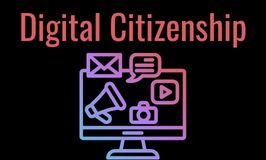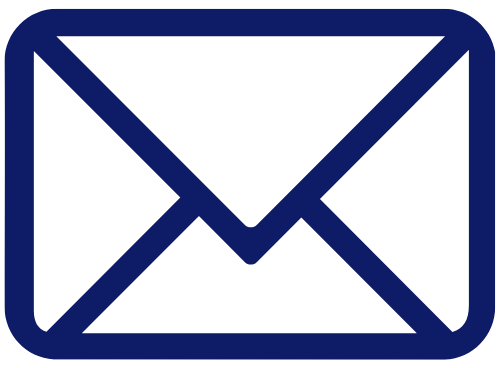School Librarian: Your DigCit Head Coach
 Creating a school culture of digital citizenship, or the responsible and ethical use of technology, is a growing need for schools. Digital citizenship instruction teaches students the skills they need to fully participate in society and make safe, informed decisions online and in life. Lessons include news and media literacy, online privacy, media balance, understanding your digital footprint, and online communication.
Creating a school culture of digital citizenship, or the responsible and ethical use of technology, is a growing need for schools. Digital citizenship instruction teaches students the skills they need to fully participate in society and make safe, informed decisions online and in life. Lessons include news and media literacy, online privacy, media balance, understanding your digital footprint, and online communication.
To create a culture of digital citizenship (or DigCit), schools need to approach DigCit as a team sport— developing an intentional plan for instruction, supporting all educators as DigCit instructors, and engaging the entire school community through family outreach. And who is best prepared to lead your DigCit team as head coach? Your school librarian.
School librarians are the only certified K-12 information professionals, and teacher librarian graduate programs include coursework in digital citizenship, information literacy, media literacy and digital pedagogy. Across the country, school librarians are developing and executing intentional plans to prepare students for their future as digital citizens. This post shares examples of how school librarians, with their many hats and variable schedules, lead this work.
Develop a DigCit Scope & Sequence
Lindi Farris-Hill and Amy Milstead, teacher librarians from Mesquite Independent School District (TX) and co-authors of Advocating Digital Citizenship, describe how they collaborated with fellow educators to craft a digital citizenship scope and sequence for their schools. They emphasize the importance of “small things done consistently” as a more effective way of building a digital citizenship culture, which requires intentional planning and an all-hands-on-deck approach. Need a model? Listen to the free edWeb webinar featuring Farris-Hill and Milstead via this edWeb.net link and learn how they created a DigCit scope and sequence based on nine DigCit elements and ISTE standards.
Co-Create DigCit Lesson Plans
Lindi Farris-Hill and Amy Milstead join grade level and content area planning meetings to collaborate with classroom teachers and plan authentic opportunities for students to learn and practice digital citizenship. Farris-Hill and Milstead recommend partnering with teachers of subjects that are not tested (e.g. Fine Arts, Government) as these classroom teachers are likely to have more flexibility to integrate new content.
Integrate DigCit All Year Long
Developing a school culture of digital citizenship requires multiple, layered approaches to integrate learning opportunities throughout the year. School librarians lead this work in many different ways:
- Creating Asynchronous DigCit lessons to share with teachers to use as a “warm up” via their Learning Management System.
- Marketing DigCit learning opportunities via a monthly DigCit Lesson Menu and sign-up calendar to share with classroom teachers.
- Sharing weekly DigCit tips in classroom or schoolwide announcements, e.g. Google Classroom or Schoology announcements.
- Planning DigCit mini lessons for teachers to integrate into Morning Meeting or during their Advisory period.
- Visiting after-school clubs to integrate DigCit lessons that align with club activities.
- Leading professional development for staff on DigCit topics.
Engage Families in DigCit Education
Families are also VIP players in the team sport of DigCit, and school librarians are often the wizards behind the curtains of schoolwide efforts to engage families in DigCit education. In the edWeb webinar “Making Digital Citizenship Meaningful,” Brianna Lucas and Sara Spizzirri from Fairfax County Public Schools (VA) share the planning strategies and outcomes of their hugely successful Social Media Parent Empowerment Workshop. Events like this workshop extend the “small things done consistently” approach to the home environment. Other DigCit family engagement ideas include:
- Invite an expert on technology use to a regular parent meeting, e.g. the “monthly coffee.”
- Provide all families with copies of media contracts and guidance on how to co-create a media balance agreement with their children.
- Include DigCit content in the school’s regular communications to families, e.g. the weekly newsletter.
- Publish a DigCit monthly newsletter for families.
- Post DigCit content via the school’s social media channels.
 Resources for Teaching Digital Citizenship
Resources for Teaching Digital Citizenship
Advocating Digital Citizenship by Lindi Farris-Hill and Amy Milstead (book)
Be Internet Awesome – A Program to Teach Kids Online Safety (DigCit curriculum, teacher training, and family resources)
Common Sense Education (DigCit curriculum, teacher training, and family resources)
“Digital Citizenship in Libraries All Year: Planning for the School Year” (edWeb webinar)
Digital Respons-Ability (DigCit curriculum, teacher training, and family resources)
“Making Digital Citizenship Meaningful” (edWeb webinar)
 Sign Up for CSL News You Can Use
Sign Up for CSL News You Can Use
Would you like to receive weekly updates of Colorado school library events, professional learning, grants and more? Subscribe here to CSL News You Can Use.
 Professional Learning, February 2023
Professional Learning, February 2023
Can’t attend the live session? Most webinars offer free access to the recording with registration.
2/7/23 Becoming a Native Knowledge 360° Educator: A Deeper Dive Into More Complete Narratives About American Indian Removal (Smithsonian)
2/8/23 AASL Town Hall | Love Your Profession (AASL)
2/9/23 Britannica School Basics (Brittanica)
2/9/23 – 2/11/23 CCIRA Conference |Empowering Literacy Educators (CCIRA)
2/13/23 Bite-Sized Digital Citizenship: Scaffolding Big Ideas for Early Elementary Students (edWeb)
2/21/23 Spark the Change | Colorado’s RSVP Program (Colorado State Library)
2/24/23 – 2/25/23 CLiC Virtual Winter Workshop (Colorado Library Consortium)
- Dinosaurs are the past. School librarians are the future. - April 4, 2024
- The K-12 Library Connection: The School Librarian Solution to 2024 Education Challenges - January 4, 2024
- The K-12 Library Connection: Sharing School Library Impact - December 5, 2023